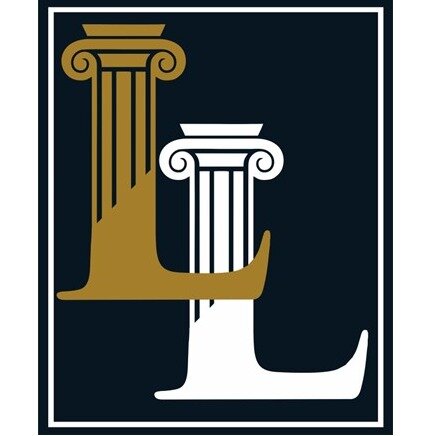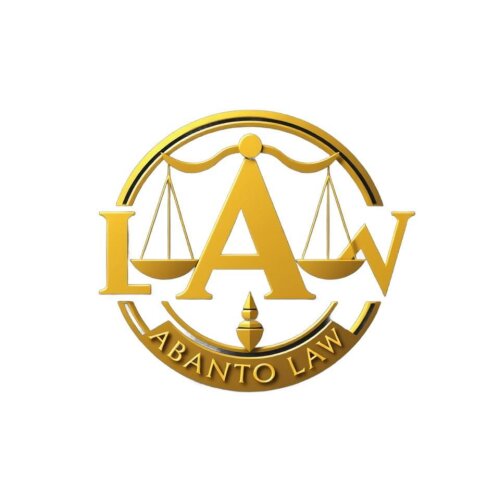Best Veterans Benefits Lawyers in Philippines
Share your needs with us, get contacted by law firms.
Free. Takes 2 min.
Or refine your search by selecting a city:
List of the best lawyers in Philippines

Dagsaan Monterde Castillo Law and Notary Public (DMC LAW)
15 minutes Free ConsultationAbout Veterans Benefits Law in Philippines
Veterans Benefits in the Philippines are designed to honor and provide support for individuals who have served in the military. These benefits include pensions, health care, education assistance, and burial benefits. The Philippine Veterans Affairs Office (PVAO) is the main government agency responsible for administering these benefits. They ensure that eligible veterans and their dependents receive the appropriate support and services.
Why You May Need a Lawyer
Engaging with the legal system to claim Veterans Benefits can be complex, and there are several scenarios where legal help may be necessary:
- If you need assistance with the documentation required to establish your eligibility for benefits.
- If you encounter issues with delays or denials of claims and need to appeal administrative decisions.
- If you are a spouse or dependent seeking benefits after a veteran's death and require help with navigating survivor benefits.
- If you're dealing with disputes over pension amounts or entitlements.
- If you believe you are not receiving the full scope of benefits you are entitled to and need legal advice to rectify the matter.
Local Laws Overview
The legal framework governing Veterans Benefits in the Philippines is influenced by various laws and regulations, including:
- Republic Act No. 6948: Provides standard benefits and assistance for veterans, including disability pensions and educational benefits for their children.
- Republic Act No. 7696: Enhances the benefits for veterans and their dependents, marking improvements in pension systems and benefit distribution.
- Republic Act No. 9499: Amends existing laws to expand benefits to veterans of World War II, the Korean War, and the Vietnam War, emphasizing increased pensions and healthcare services.
These laws ensure that veterans receive due recognition and support, but the specificity in legal language often necessitates professional legal interpretation.
Frequently Asked Questions
What are the eligibility criteria for Veterans Benefits in the Philippines?
Eligibility is generally extended to individuals who have served in either Philippine or Allied forces and have been recognized for their service. Spouses and dependents of deceased veterans may also qualify for certain benefits.
How can I apply for veterans' pensions?
Applications can be submitted through the Philippine Veterans Affairs Office (PVAO), which requires service records, identification, and, if applicable, medical or death certificates to process claims.
What educational benefits are available for children of veterans?
Qualified dependents may apply for educational assistance from PVAO, which includes tuition fee subsidies and financial support for secondary and tertiary education.
How do I appeal a denied Veterans Benefits claim?
If your claim was denied, you can file an appeal with the PVAO. It is advisable to consult a lawyer to assist with gathering additional evidence and support for your case.
What health care options are available for veterans?
Veterans may access medical services through PVAO-accredited hospitals and clinics. Additionally, those with service-connected disabilities may receive more comprehensive healthcare coverage.
Are there disability pensions available for veterans?
Yes, veterans with service-connected disabilities are eligible for pensions, the amount of which depends on the severity and nature of the disability, as per assessment guidelines.
What burial benefits can veterans or their families expect?
Veterans are entitled to a burial allowance to cover funeral expenses, and families can opt for internment in military cemeteries if desired.
Can veterans' dependents receive benefits if the veteran has passed away?
Yes, spouses and dependents may receive benefits such as pension, educational assistance, and healthcare in line with their unique circumstances and relation to the veteran.
How long does the process take to receive approved benefits?
Processing times for benefits claims can vary, but legal representation might expedite the process and handle inquiries more efficiently.
Can veterans who served in foreign allied forces qualify for benefits in the Philippines?
Yes, veterans who have served with recognized foreign allied forces may also be eligible for certain benefits stipulated under Philippine veterans laws.
Additional Resources
Here are some resources that can provide further assistance:
- Philippine Veterans Affairs Office (PVAO): The primary body for managing veterans' affairs and claims.
- Veterans Federation of the Philippines (VFP): An organization that supports veterans' rights and welfare.
- Department of Veterans Affairs (DVA): Provides various services and information to veterans.
Next Steps
If you find yourself needing legal assistance for Veterans Benefits in the Philippines, consider taking the following steps:
- Gather all relevant documentation, including service records, medical certificates, and previous PVAO communications.
- Contact a lawyer specializing in Veterans Benefits to discuss your case. Look for legal practitioners with experience in administrative and benefits law.
- Prepare to present your case details clearly and succinctly to ensure your lawyer can provide the most accurate advice.
- Stay informed about any changes in veterans' laws by regularly checking updates from PVAO and participating in veterans' associations.
By engaging the right resources and legal support, you can better navigate the complexities of Veterans Benefits in the Philippines.
Lawzana helps you find the best lawyers and law firms in Philippines through a curated and pre-screened list of qualified legal professionals. Our platform offers rankings and detailed profiles of attorneys and law firms, allowing you to compare based on practice areas, including Veterans Benefits, experience, and client feedback.
Each profile includes a description of the firm's areas of practice, client reviews, team members and partners, year of establishment, spoken languages, office locations, contact information, social media presence, and any published articles or resources. Most firms on our platform speak English and are experienced in both local and international legal matters.
Get a quote from top-rated law firms in Philippines — quickly, securely, and without unnecessary hassle.
Disclaimer:
The information provided on this page is for general informational purposes only and does not constitute legal advice. While we strive to ensure the accuracy and relevance of the content, legal information may change over time, and interpretations of the law can vary. You should always consult with a qualified legal professional for advice specific to your situation.
We disclaim all liability for actions taken or not taken based on the content of this page. If you believe any information is incorrect or outdated, please contact us, and we will review and update it where appropriate.
Browse veterans benefits law firms by city in Philippines
Refine your search by selecting a city.















